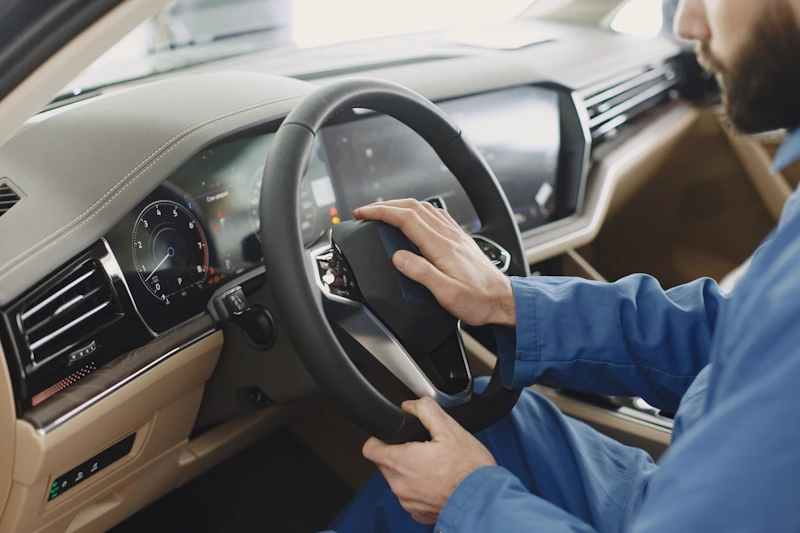How many miles can a car last? While the average car might hit 200,000 miles, some truly go the distance, reaching 300,000 or even higher! With the average US passenger car being around 12 years old, choosing the right vehicle and caring for it properly are essential for getting the most out of your investment.
Mileage as a Starting Point
How many miles can a car last? The 10,000 to 12,000-mile annual benchmark serves as a helpful starting point when assessing used cars. Although encountering a vehicle with below-average mileage can be appealing, it’s crucial to recognize that the odometer only reveals part of the vehicle’s history. Even a car driven infrequently necessitates regular maintenance. Regardless of mileage, rubber components, fluids, and seals can deteriorate over time. A low-mileage vehicle that has been stationary for extended periods might conceal underlying issues.
How many miles can a car last? Brief, stop-and-go journeys in urban traffic subject an engine to more strain compared to extended highway drives. A vehicle with lower mileage but a history of aggressive driving could harbor unseen mechanical stresses. Cars from challenging climates, coastal regions (exposed to salt), or locales with extreme temperatures may undergo accelerated deterioration and corrosion, irrespective of mileage. How many miles can a car last? A vehicle with fewer miles but lacking documented maintenance records poses a risk. Conversely, a car with slightly higher mileage but well-documented service history presents a more reliable option.
This is non-negotiable! Even if a low-mileage vehicle appears to be a fantastic deal, having a qualified mechanic inspect it can reveal potential issues invisible to the untrained eye. Strive for a blend of low mileage and a comprehensive history of maintenance. Look beyond the odometer and assess the vehicle’s overall narrative to make the most informed decision.
Factors That Boost a Car’s Lifespan
Brand and Model Reputation
How many miles can a car last? When evaluating used cars, the brand and model reputation can significantly influence longevity and reliability. Some brands have established a track record of building durable vehicles that stand the test of time. It’s crucial to conduct thorough research on known long-lasting cars within your budget and preferences. Online reviews, consumer reports, and forums dedicated to car enthusiasts can provide valuable insights into which brands and models hold up well over years of use.
Investing in a car with a strong reputation for reliability can offer peace of mind and potentially reduce long-term maintenance costs. Brands known for producing dependable vehicles often prioritize quality in manufacturing, leading to fewer mechanical issues and more outstanding durability.
Technological Advancements
How many miles can a car last? Modern cars have advanced technological features that contribute to longevity and safety. Sophisticated computer systems monitor various vehicle components, detecting potential issues before they escalate into costly repairs. These systems can promptly alert drivers to maintenance needs, allowing for timely intervention and preventive measures.
Additionally, driver-assist technologies such as adaptive cruise control, lane departure warnings, and automatic emergency braking enhance safety and reduce wear and tear on the vehicle. These features can extend the lifespan of critical components like brakes and suspension by assisting drivers in avoiding accidents and minimizing abrupt maneuvers.
The Power of Maintenance
How many miles can a car last? Adhering to its maintenance schedule is one of the most critical factors in prolonging a car’s life. Regular servicing, according to the manufacturer’s recommendations, ensures that essential components are inspected, lubricated, and replaced as needed. For drivers operating in harsh conditions such as extreme temperatures or heavy stop-and-go traffic, opting for a more rigorous service plan outlined in the owner’s manual is advisable.
Routine maintenance tasks such as oil changes, fluid top-ups, and filter replacements prevent premature wear and maintain optimal engine performance. Ignoring maintenance schedules can lead to mechanical failures, decreased fuel efficiency, and potentially costly repairs.
Driving Habits Count
How many miles can a car last? How you drive your car significantly impacts its longevity. Aggressive driving behaviors like rapid acceleration, harsh braking, and driving over rough terrain accelerate wear and tear on vital components such as the engine, brakes, and suspension. Opting for smooth acceleration, gentle braking, and avoiding harsh road conditions can extend the lifespan of these components and overall vehicle durability.
Furthermore, consistent and moderate driving habits contribute to better fuel efficiency, reducing engine strain and transmission strain. Practicing defensive driving techniques not only enhances safety but also preserves the condition of your vehicle over time.
Don’t Neglect the Details
How many miles can a car last? Paying attention to the finer details of car care can make a substantial difference in its lifespan. Regularly washing and waxing your vehicle isn’t just about aesthetics—it protects the paint from environmental contaminants and prevents rust formation. Additionally, storing your car in a garage or under a cover shields it from sun exposure, rain, snow, and other elements that can cause corrosion and deterioration.
Maintaining proper tire inflation, rotating tires regularly, and inspecting for signs of wear and damage contribute to overall safety and longevity. By incorporating these small yet essential practices into your car care routine, you can significantly extend your vehicle’s lifespan and resale value.
Beyond the Odometer: What Else to Consider
How many miles can a car last? You can estimate the longevity of a used car by looking at certain factors:
Previous Ownership: Was the car meticulously maintained? A stack of service records is a good sign. Accident history reports help reveal any significant repairs.
Environment Matters: Cars from dry climates are less prone to rust. Conversely, vehicles driven in harsh winter conditions with road salt might have unseen wear and tear.
Mechanic’s Inspection: Before buying any used car, have a trusted mechanic thoroughly examine it. They can spot potential problems that the average buyer might miss.
Key Takeaways
Cars are complex machines, and many variables influence their lifespan. Choosing a reliable model, staying on top of maintenance, and driving responsibly will give your vehicle the best chance to reach those high-mileage milestones and serve you well for many years!
Customers looking to sell junk cars in Fort Lauderdale that they no longer need can quickly contact Hercules for a hassle-free experience. Hercules is a premier Fort Lauderdale junkyard specializing in buying used and unwanted vehicles. It offers a convenient solution for those looking to dispose of their cars quickly and efficiently.
Our representative will walk you through the junk car selling process, providing a fair vehicle evaluation, and offering a competitive price. With Hercules, your premier junkyard in Fort Lauderdale, selling an old or junk car becomes a seamless transaction, saving customers time and effort while ensuring a satisfactory outcome. Call Hercules today!

